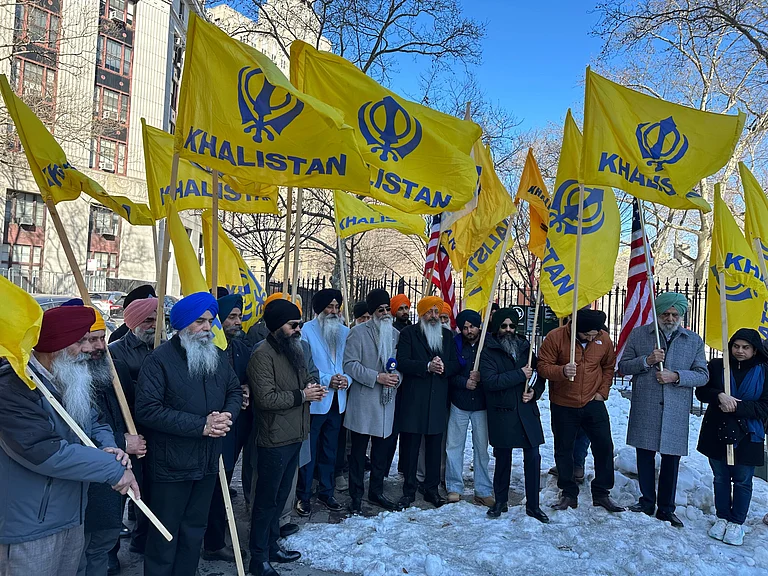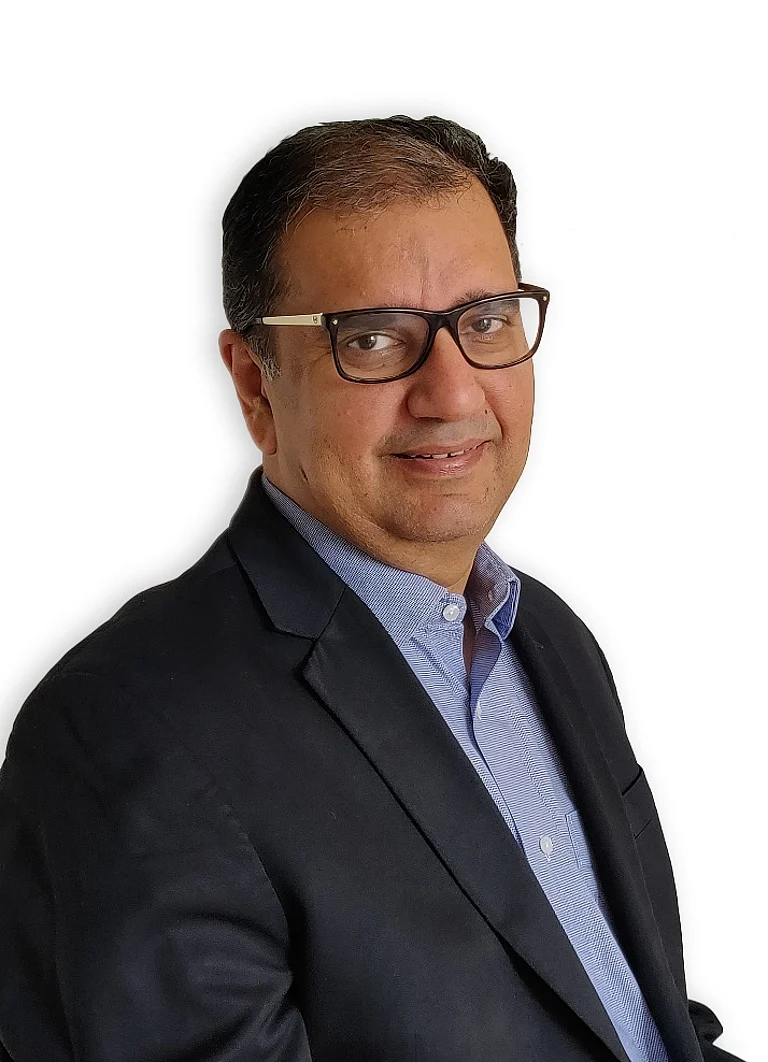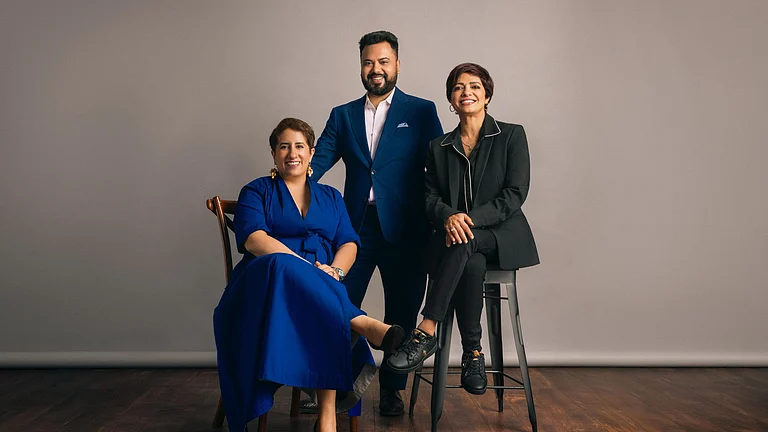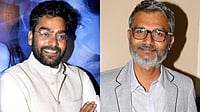Michelin-starred chef and filmmaker Vikas Khanna has joined hands with Oscar-winning producer Guneet Monga to be the executive producers of Oscar-qualified animated short 'American Sikh', which is a true story about an American-born, turban-wearing Sikh illustrator, writer, performance artist Vishavjit Singh. Singh, known for his Captain America persona as a turbaned and bearded Sikh, has faced prejudice, self-doubt and violence in his lifetime, and decided to fight against bigotry, intolerance and perceptions post 9/11.
Now, during an exclusive chat with Outlook India, Vikas Khanna spoke about backing the project, facing discrimination himself during his time abroad, and what he misses the most about Indian culture. Excerpts from the interview:
Congratulations for the ‘American Sikh’! You and Guneet Monga are executive producers on the project. How did the collaboration prosper?
I was aware of this movie for a very long time, more than 10 years. I have been a big admirer of Vishvajit. When there is hatred around you, one tends to lock themselves, very few people want to come out and show a new version of themselves, and Vishvajit was one of them. I was working when the movie was getting nominated at the San Diego International Film Festival as the Best Documentary, winning at the LA Film festival, so for me it is a victory for our culture. When Guneet and I discussed this as executive producers, we both thought that this would be an amazing journey for the movie to get the top status at the Oscars and at the same time to celebrate uniqueness.
For me the most important thing was to make the audience understand that Vishvajit Singh is just like all of us as sometimes in our life, we feel that we don’t belong anywhere, and he is the one that actually showed us that the beauty of human aid is that you fight it with compassion.
The project has themes of inclusivity, resilience, and acceptance. The protagonist is a Sikh man born in America, and wears a turban. How do you associate yourself with the idea?
My grandmother used to always tell me that Sikhs are superheroes and she used to be very proud of doing sevas at Gurudwaras and I was inclined towards this from the beginning. We used to go our temples. My grandmother used to always say that Sikhs are the protectors. If you like at the history of how they protected people during so many wars. For example, if there is any calamity like earthquakes, the Sikhs are the first ones to reach out and help with langar to serve the people in need. I believe there is no other culture in the world that serves the people like Sikhs. So, when I saw the hate towards Vishvajit, I was one of the few Indians to raise my voice. If something happens to Indians, then there are very few Indians, who actually raise their voice because everyone has to protect their branding, that they are white. From the very beginning, I was like I am not here to do slavery, this is my stage and considered New York City my stage. When I saw so much hate towards Vishvajit in New York City, it completely broke my heart. I am the only one putting langars at Times Square and making documentaries on Sikhs, because it was a very important narrative as this is what I was raised with. I always felt this was an attack on all of us.
How did you all come together on the same page regarding the representation of the culture? Were there any apprehensions?
The movie is a collaboration between Vishvajit Singh and Ryan Westra. There were 30 versions of the film and they were very clear that they wanted to make it as short as possible. My grandma told me stories about the Sikhs and we wanted to share the same to American kids, that is how you balance out the society. Hate cannot cut hate. I am 100% of the opinion that movies like this, which are so honest and real with a short format and animation is an amazing idea. We can show this movie in schools and kids are looking at the animation, but at the same time you are sending an important message to them.
‘American Sikh’ has been finalised for an animated short film at The Oscars, and has travelled to several festivals across the globe. How has been the response so far?
It’s an amazing thing but not everybody is going to like what you create. I have always been very open that not everybody appreciates my dishes. One would say I have been one of the most successful chefs of our time, but do you think all my dishes were accepted? Never. We had black chicken from Assam, and we had to take it off the menu because people did not understand it. Sometimes the timing is correct, right now it's time for us to talk about so many of the scars the children endure. I am a survivor of 1984 riots, I saw what was happening to Sikhs in front of our eyes. We saw what happened in Delhi, also the displacement of Kashmiri Hindus, but you will be surprised how much it takes a toll on a child. In 92’, when I was in Bombay the riots happened, I came to New York and 9/11 happened. Our whole lives are based around so much hate because something else was happening in the world. For these kids, we had a good balance system, Vishvajit had a great family. I had an amazing mother and grandmother who balanced me out or else the kids would get scarred. People do not talk about the wars which scarred children forever.
You have been living abroad for such a long time now. Did you ever face discrimination in any form, and what made you sail through everything?
My sister and my mom. There was a time when I was thrown out of a restaurant in New York. They said that they were uncomfortable, and I had to leave. These sorts of things break your heart and I was right across the street from 9/11. For three months, people would not come and talk to us. They were so scared of our identity. We see this passive aggressive behaviour all the time in America, and I feel that you cannot let that define you. I am so proud of what Vishvajit Singh has done and that day I met him and started crying and told him that the bigger vision of the movie is to see him walk up the steps of the Oscars, first Sikh in 100 years of history and he was on board with it. We fly straight from LA without any press conference straight to Amritsar and Golden Temple. We wanted to humanise the turbans and beard. The vision was that we should not create a society of hostility and so much pain for our children. In fact, we should make them feel equal or even better.
You are one of the first Indian chefs to be awarded a Michelin star. You have written several award-winning books. Being a chef, a director, producing films, what do you think is the way forward?
I am launching my biggest flagship restaurant in New York next year. That is my biggest project till date, and I feel that it is going to redefine Indian cuisine in many ways. I will also make sure that I have worked with full integrity Indian cuisine there. It’s tough but it’s doable. If our generation gives up, then there is no hope for the next generation. We should be the ones to not give up and find new ways to tell the story.
What do you miss about your culture the most?
I miss India. I am not one of those people who says oh I am in America; I am not that fake. I don’t need to bootlick anyone. I don’t need two people to make me complete. I believe that if I change then there will be a perception that I will be accepted only if I change. I have never worked under anyone. For me, it has always been that I work for my mom. For me, pride is very high, and I do pay a price for that but it does not matter. We don’t have to change according to what they think. Our next generation should feel the pride of integrity of our culture and traditions.
'American Sikh' was created in partnership with Singh as the director-producer and Ryan Westra.


























